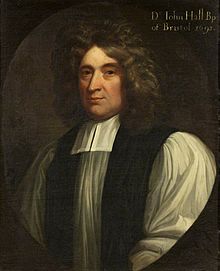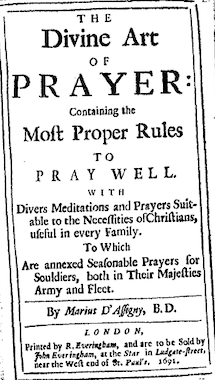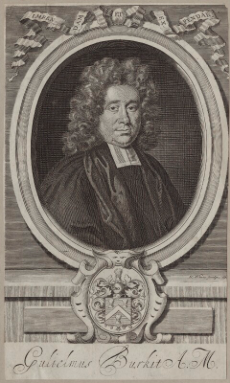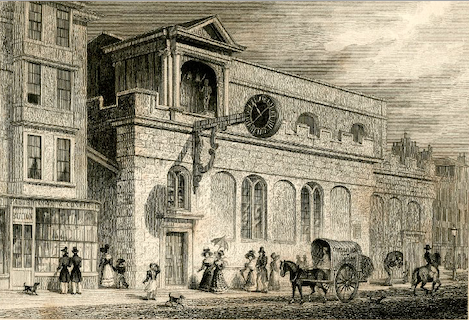
John Boys (1571-1625) was Dean of Canterbury for the final 6 years of his life, during the reign of James I. Boys was particularly known for his exposition or commentary on the various parts of the liturgy of the Church of England, or the Book of Common Prayer.
In the Book of Common Prayer’s Holy Communion service, directly after the confession and absolution, the eucharistic liturgy begins with the minister exclaiming, “Lift up your hearts!” (Latin: Sursum corda), with the people responding, “We lift them up unto the Lord!”
Boys comments on the Sursum corda in his An Exposition of al the principal Scriptures vsed in our English Liturgie (1610), p. 118-119 (spelling modernized in places):
Sursum corda seems to be taken out of the Lamentations of Jeremy (3:41): Levemus corda nostra cum manibus ad dominum in coelos: used in the Church at least 300 years before Popery was known in the world. For Augustine who lived within 400 years after Christ, and the blessed Martyr Cyprian, who died an. 259, make mention of it in their writings often (Cyprian in Serm. de Orat. Dominic.; Augustine De Vera Religione, cap. 3. and Epist. 156. and [as Cassander observes] Epist. ad Dardan. & Lib. de Bono Perseverantiae. Sursum corda then is no rag of Rome, no piece of Popery, but used in all liturgies of the ancient Church (Perkins, Reformed Catholike); and that which may content the Novelist most, it was borrowed (as Master Fox thinks) not from the Latin, but from the Greek Churches. Howsoever, it is exceeding fit: for Almighty God in his holy service requires our heart principally: Son, give me thine heart (Prov. 23:26): so that when we come to his Temple, specially to his table, every one must say with David, I lift up my soul to thee (Ps. 25:1). For (as the Church of Scotland says truly, in the minister’s exhortation before the communion) the only way to receive worthily the Lord’s Supper, is to lift up our minds by faith above all things worldly and sensible, and thereby to enter into heaven, that we may find and receive Christ, where he dwelleth: a point well urged also by our Church in her Homily concerning the worthy receiving of the Sacrament: part the first.
The Papists entertain this clause still in the Roman Missal; but it makes against their real presence. For if Christ’s body (Io. Combis, Compen. Theolog. Lib. 6. Cap. 14) so large in quantity, as it was on the cross, be present in the Sacrament; what need any man lift up his heart, when as he holds it in his hand? Totum hoc (saith Augustine, Serm. de temp. 174) fide tenemus, oculis cordis intuemur; dominus ascendit in coelum, ascendat cum illo cor nostrum: His body (Acts 3:21) must be contained in heaven until the time that all things are restored: it cannot descend down to us, we must ascend up to it. So Nicolaus Cabasila writes in his exposition of the Liturgy (Cap. 26 apud Bibliothec. Pat. Tom. 4); the Priest after some speech to the people doth erect their minds, and lift up their thoughts, and saith, Sursum corda; let us think on things above, not on things below. They consent and say, that they lift up their hearts thither where their treasure is, even to heaven, where Christ sits at the right hand of his Father.









